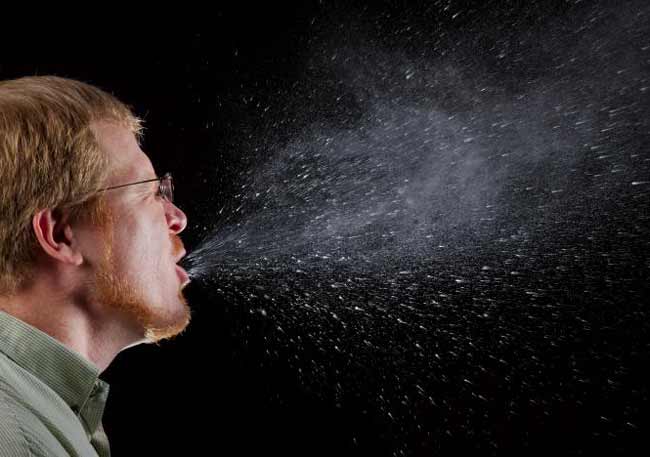5 Essential Swine Flu Survival Tips

Vice President Joe Biden said today to avoid subways and other confined spaces because of the swine flu sweeping the nation. And yesterday, the first U.S. swine flu death — a toddler — and the decision by health officials to ratchet up their global alert level to just below a full-on pandemic came as a jolt to the system. Meanwhile, there are a slew of suggestions out there for what you should do. Often the tips don't include enough detail for you to do it right. For example, you probably don't wash your hands effectively or often enough. And did you know you could be infected and spreading the flu up to a full day before you feel symptoms and up to seven days after you get sick? So while waiting for a vaccine and the next bout of bad news, here are the top five essential things you can do to avoid getting sick and, importantly, avoid infecting others. These critical tips are widely agreed upon by the World Health Organization, the U.S. Centers for Disease Control and Prevention, and other health experts. 1. Wash your hands. The best thing anyone could do right now to avoid swine flu, experts say, is to wash their hands. It sounds like a stupidly simple response to an overwhelming situation, but nearly compulsive hand-washing helps prevent the spread of this airborne respiratory disease. It's the droplets from coughing and sneezing that spread the disease. These get on our hands. And then everything we touch is infectious. How you do it is important: - Use warm or hot water if you can. - Lather up and rub not just your fingers and palms but also under the fingernails, around the wrists and between the fingers for as long as it takes to sing "Happy Birthday" twice. - Rinse well. It is important to wash your hands before eating and after using the bathroom, but also after using a tissue or covering your mouth when you sneeze or cough, sick or not. So yes, that's a lot of hand-washing. Basically, think of how often you would wash your hands if you worked in an emergency room or operating room. Wash your hands that often and that thoroughly. 2. Cover your mouth when you cough or sneeze. "The way you spread influenza is with droplets that come out of your mouth or nose," said Dr. George T. DiFerdinando Jr., a physician, epidemiologist and professor at the University of Medicine and Dentistry of New Jersey-School of Public Health. He recommends the classic shoulder or crook-of-the elbow sneeze. "It's a whole lot better for those [droplets] to be on blouse or sleeve than spraying onto surfaces or other people," he said. Then ... you guessed it ... wash your hands. Surgical face masks are an option for keeping your droplets to yourself, but they don't keep your hands clean and there is no consensus in the health care community on whether face masks are advisable for everyday use. "If [the swine flu virus] is spreading throughout the community, it would not surprise me if people use [face masks] to good effect," DiFerdinando said. 3. Stay home. If you're sick, stay home, DiFerdinando said. Try to muster the energy to wash your hands after you use tissues so you don't reinfect everything you touch afterward. This helps you recover, and protects your loved ones. 4. Don't touch your face. Try, try, to keep your hands out of your mucous membranes — your eyes, nose and mouth — direct routes to the bloodstream that allow a virus to bypass the protective barrier of the skin. Few of us succeed at this fully. "That's just human nature," DiFerdinando told LiveScience. "It's not something to moan about. In this circumstance you've got a very strong motivator to keep your hands clean. If you keep washing your hands, you decrease the dose [of flu virus] that you get when you put your hands in your mouth." 5. Avoid sick people It's a good idea to avoid close contact with other people who are sick, DiFerdinando said, adding: "We won't even see air kisses." The flu virus tends not to float in the air. Instead, once dispersed, the liquid droplets tend to settle on objects that doctors call fomites — things that people touch that can pick up a virus. Examples include coins, hand rails, door knobs, common household and office objects. Smooth objects transmit microbes more than rough or porous ones. So, for instance, coins would allow one to pick up more virus than paper money. Many of the nation's cases currently are concentrated in New York City at two schools, which is not surprising to Dr. James Koopman, professor of epidemiology at the University of Michigan's School of Public Health. "There is a lot of direct contact and touching of common things when children are in school," Koopman said. "They are in general more susceptible to these things." Stay tuned: There's lots more to learn Koopman and his colleagues are trying to pin down the relative importance of different routes of transmission — via the air or via hand touching fomite. "Our work is indicating there can be big differences between something like airborne virus — you may take a small amount in with every breath, but when you get a big goober of someone's cough on your finger and it touches your mucosal membrane — your eye, nose, mouth or somewhere where it can gain access — that could be a much higher dose," Koopman said. It takes time for a new virus — and the swine flu outbreak is based on a new strain of an H1N1 virus — to adapt to our immune systems and survive there long enough to find another organism to infect, Koopman said. At first, the immune system can handle small doses of virus, such as you get with airborne transmission, he said. In that case, "maybe the hand-fomite touching spread would be more important than the airborne," he said. Maybe later, the virus evolves to survive and transmit successfully in smaller doses, or via different routes, he said. "I personally think this virus has been circulating a bit longer than is recognized at this time," Koopman said. {{ video="LS_090428_pandemic" title="The Truth about Pandemics " caption="Dr. Marc Siegel explains why the term pandemic often inspires more fear than it should, how the media plays on fears, and how governments often make wrong and costly moves." }}
- Top 10 Deadly Diseases That Hopped Species
- Is a Swine Flu Pandemic Imminent?
- All About the Flu
Sign up for the Live Science daily newsletter now
Get the world’s most fascinating discoveries delivered straight to your inbox.
Robin Lloyd was a senior editor at Space.com and Live Science from 2007 to 2009. She holds a B.A. degree in sociology from Smith College and a Ph.D. and M.A. degree in sociology from the University of California at Santa Barbara. She is currently a freelance science writer based in New York City and a contributing editor at Scientific American, as well as an adjunct professor at New York University's Science, Health and Environmental Reporting Program.











